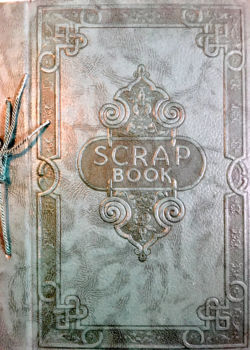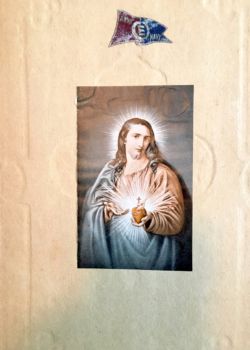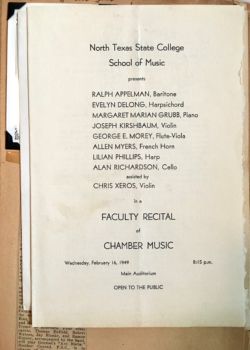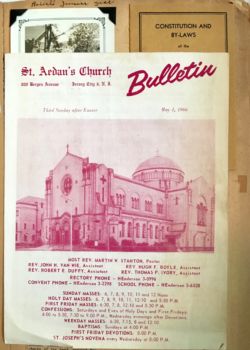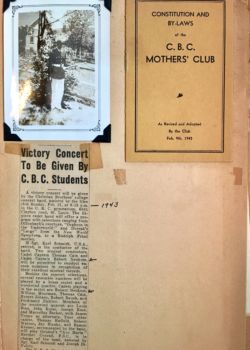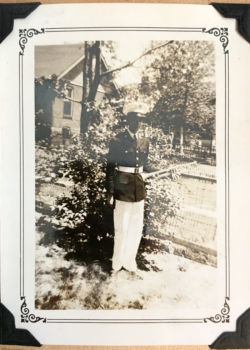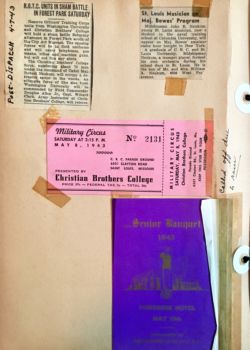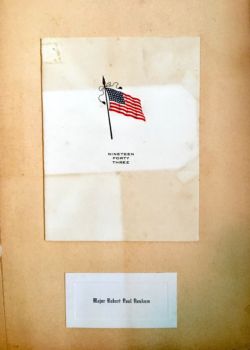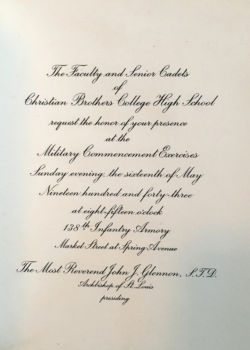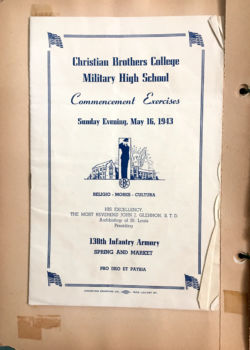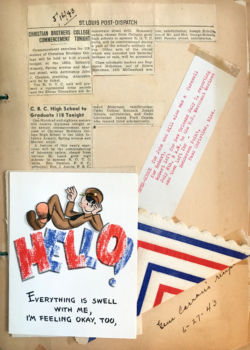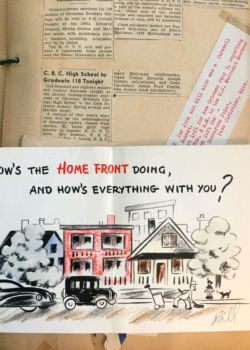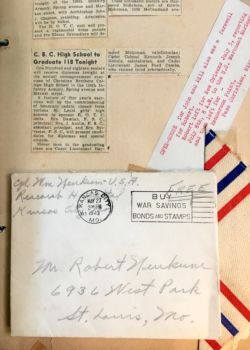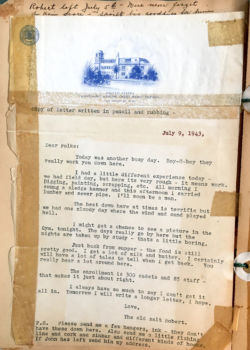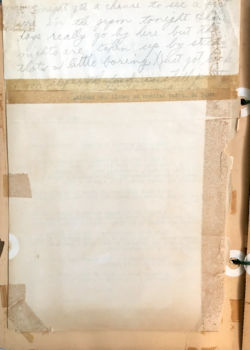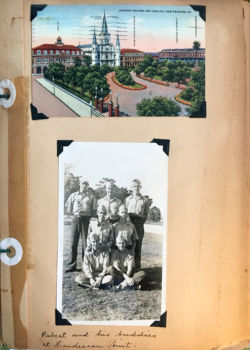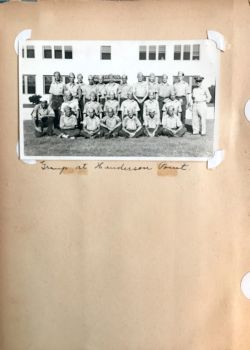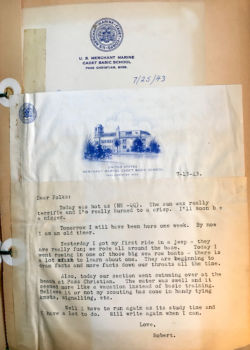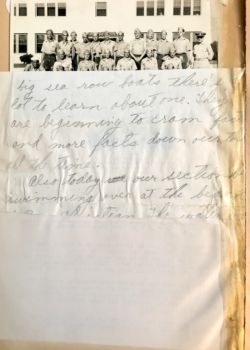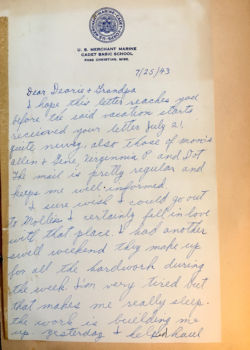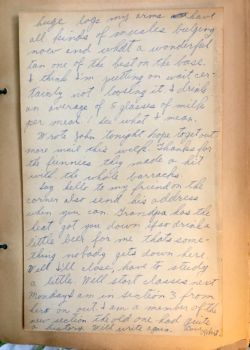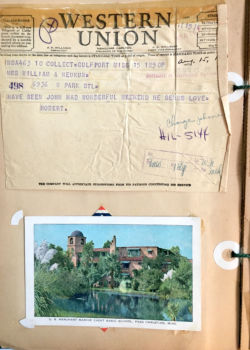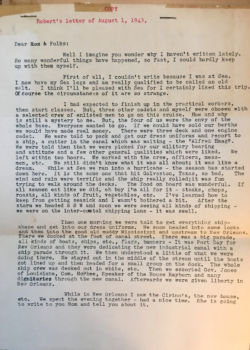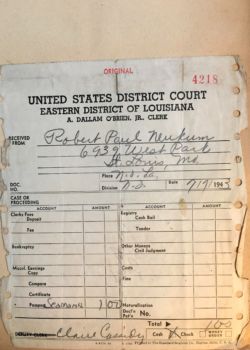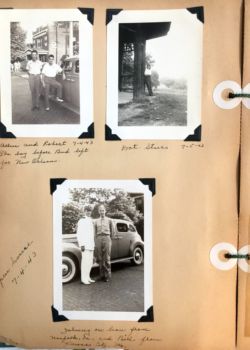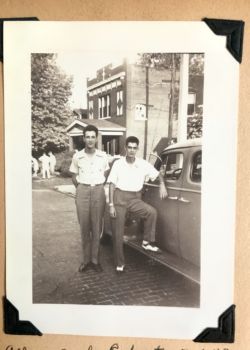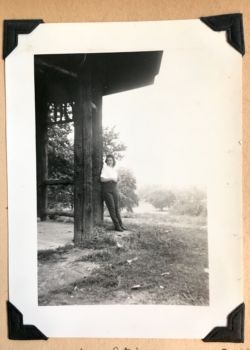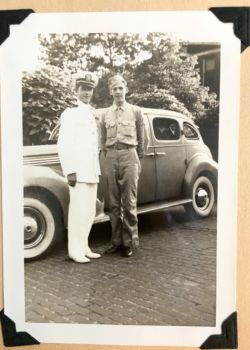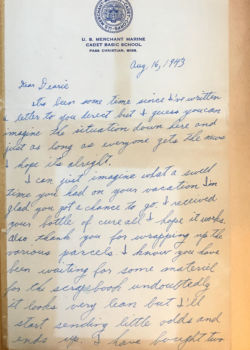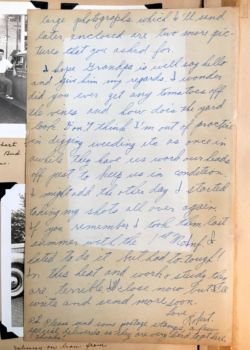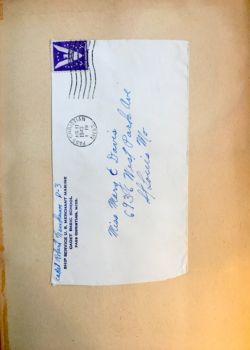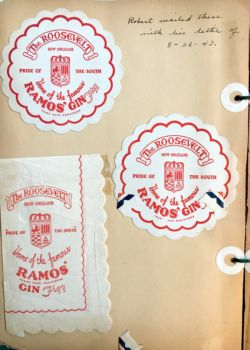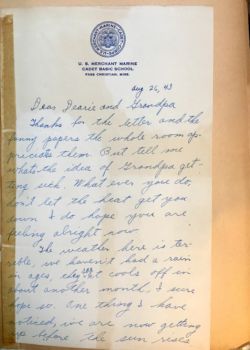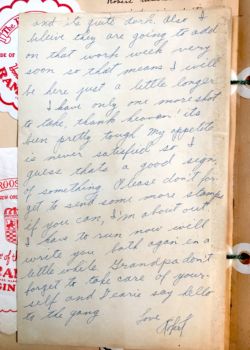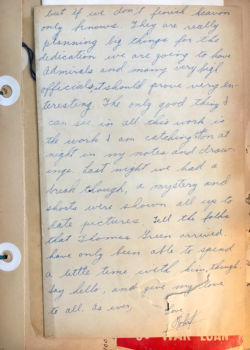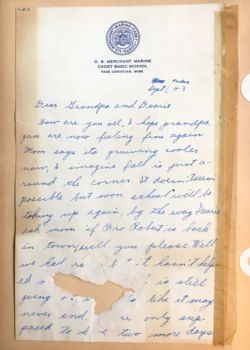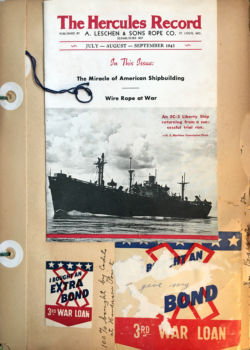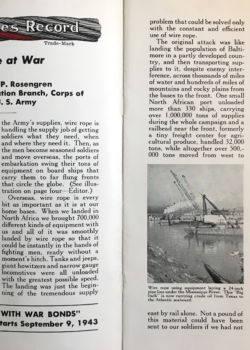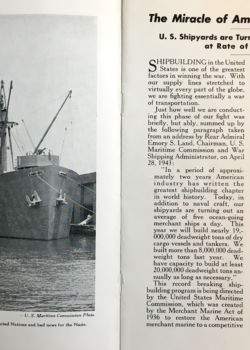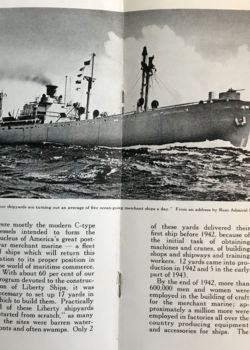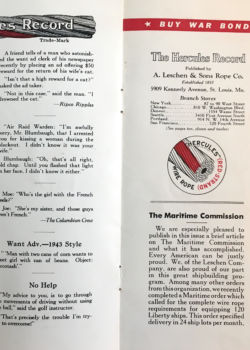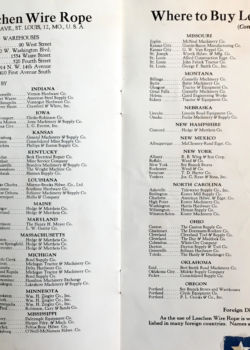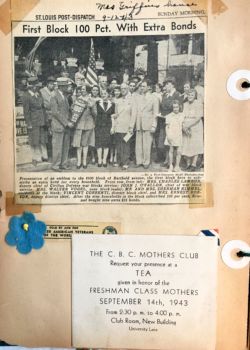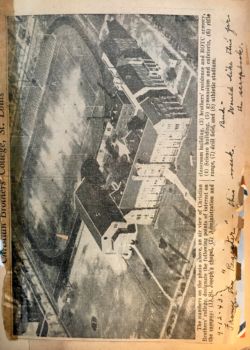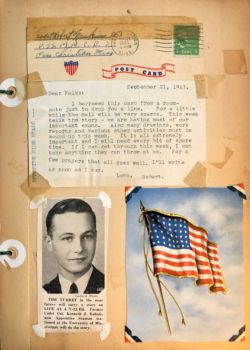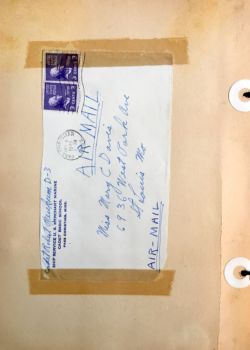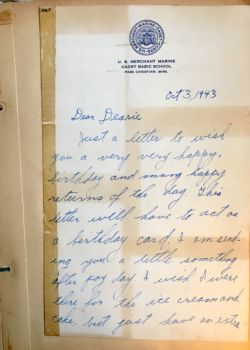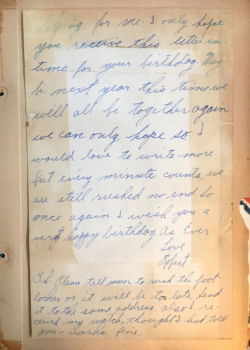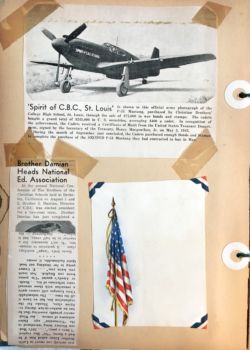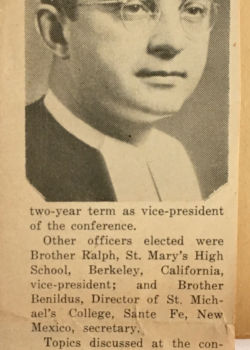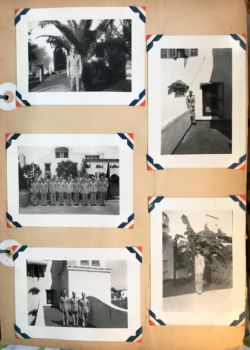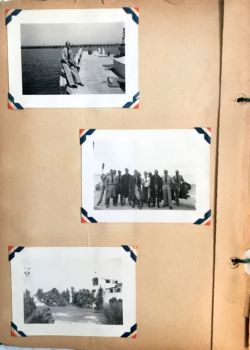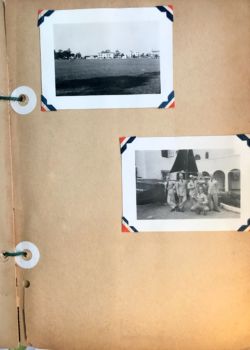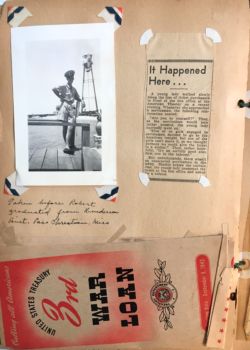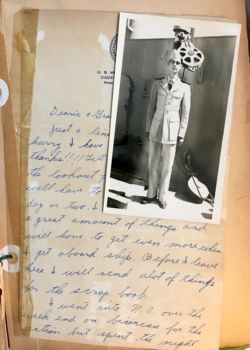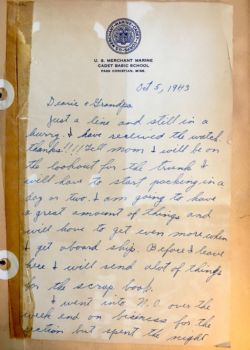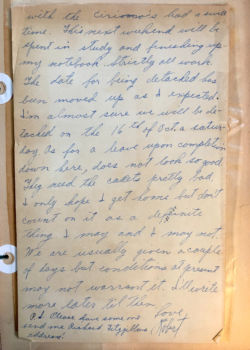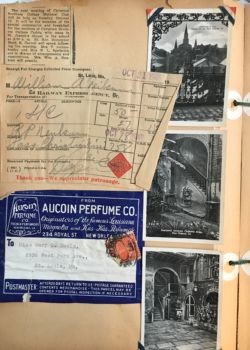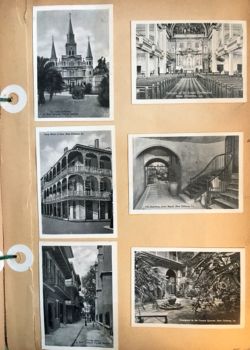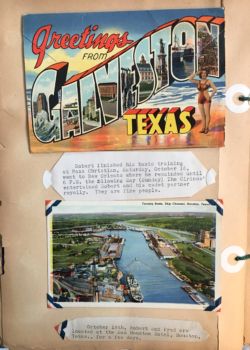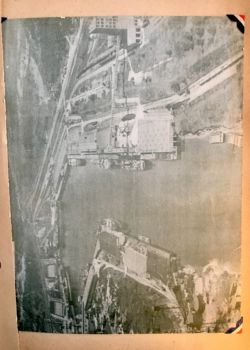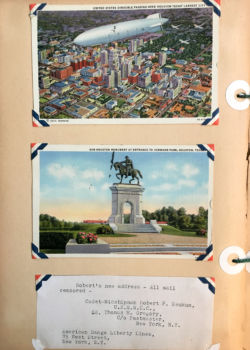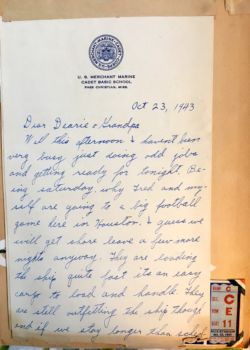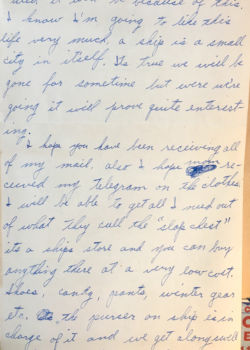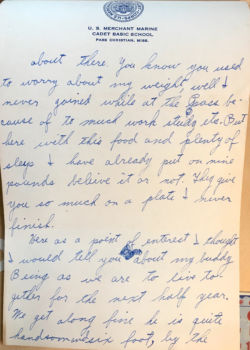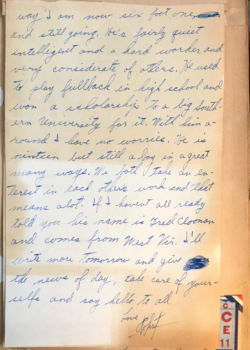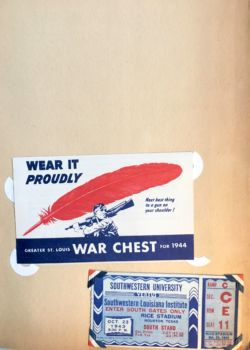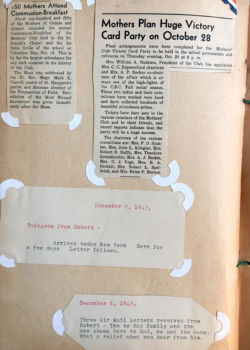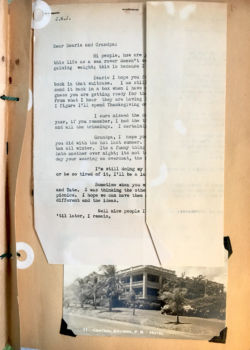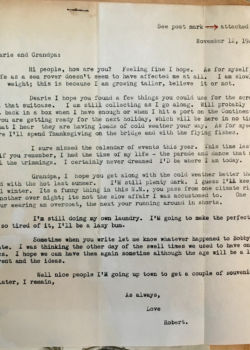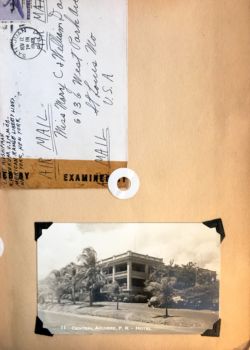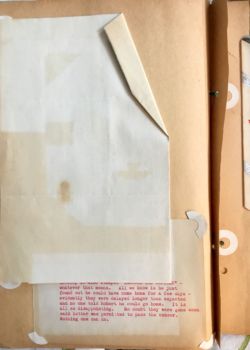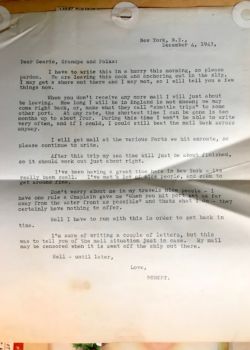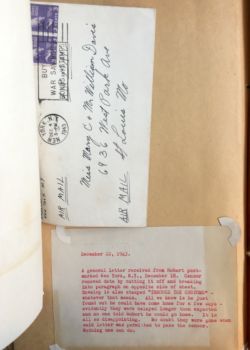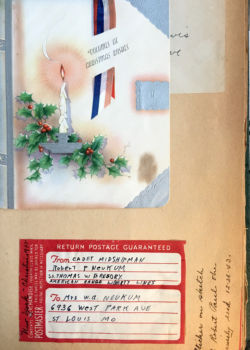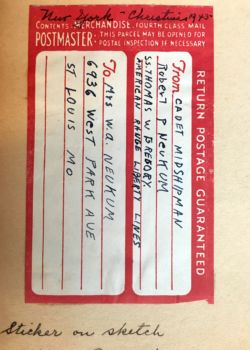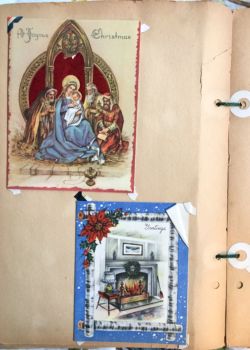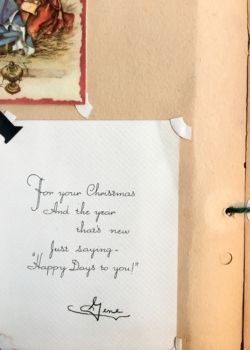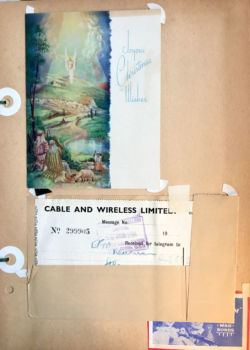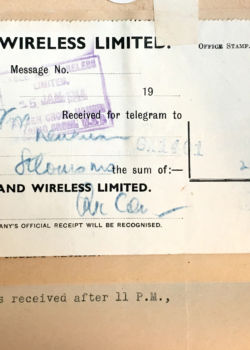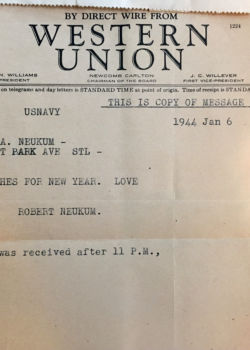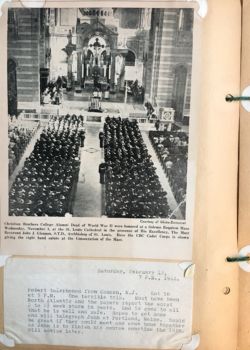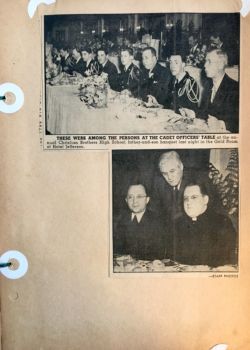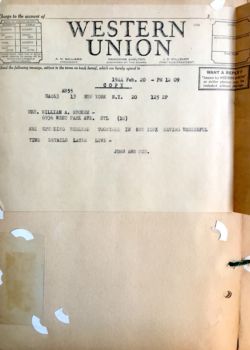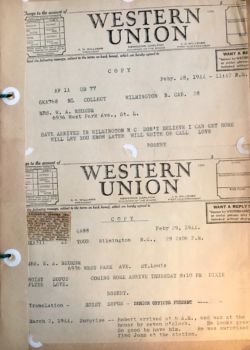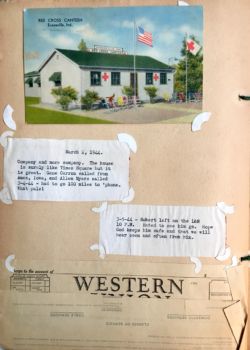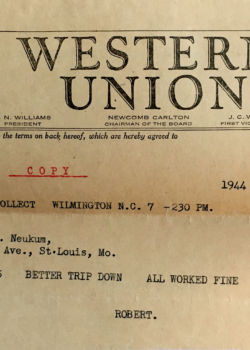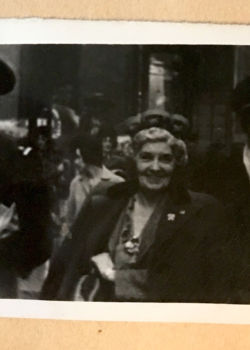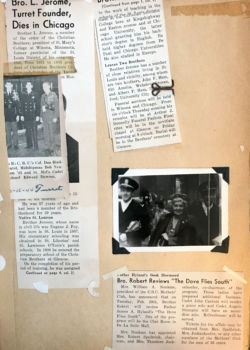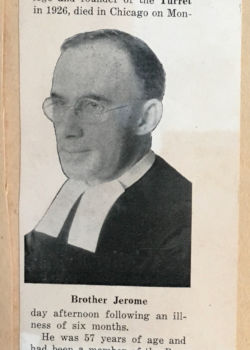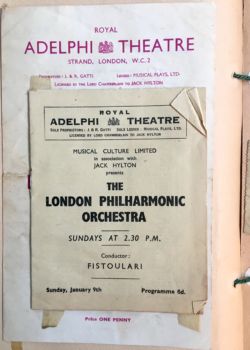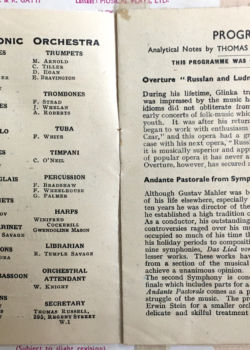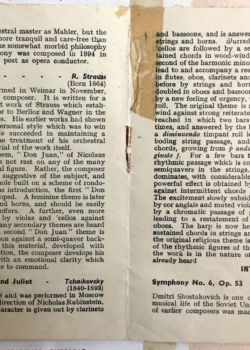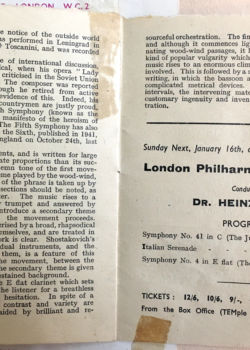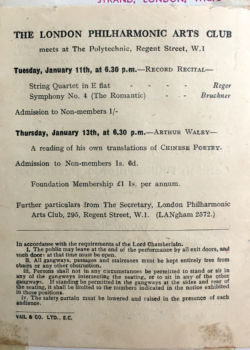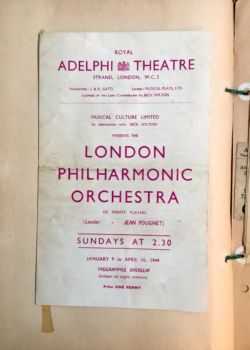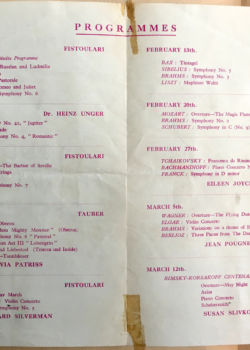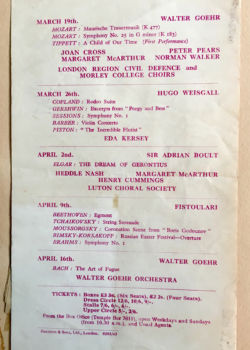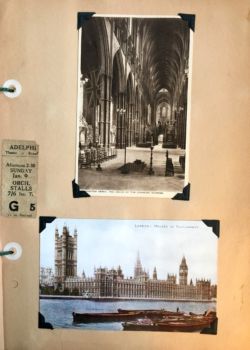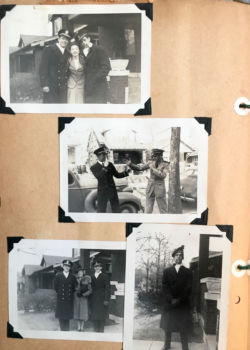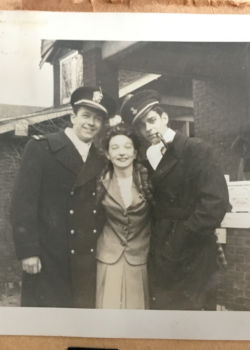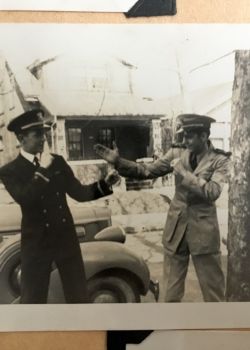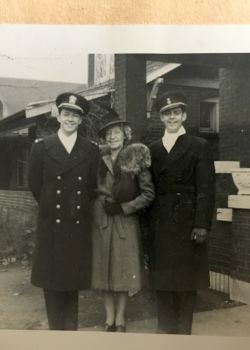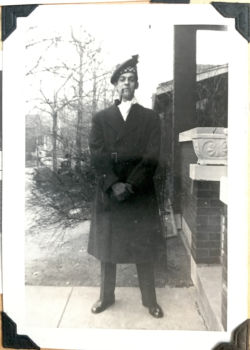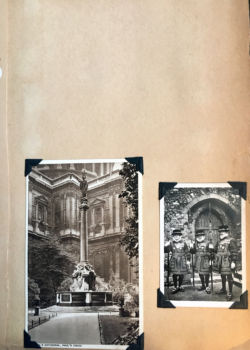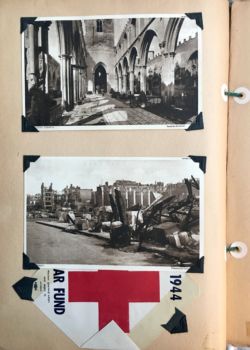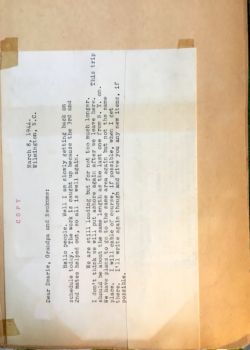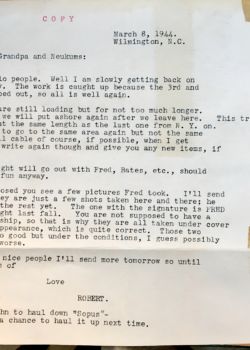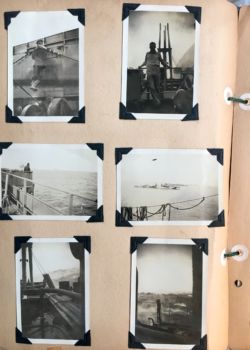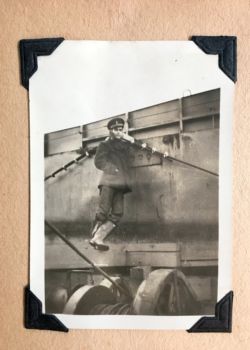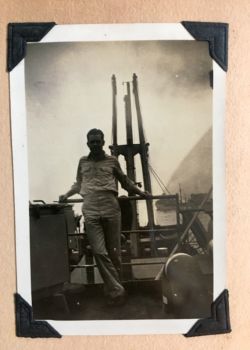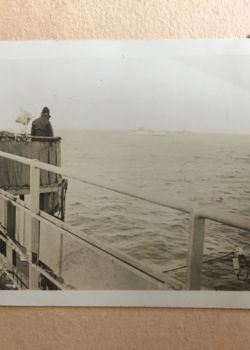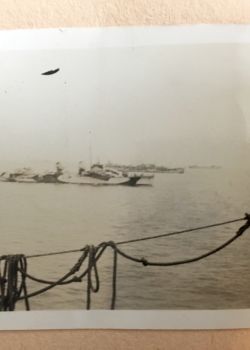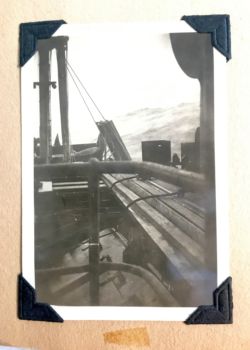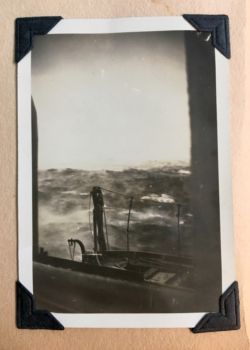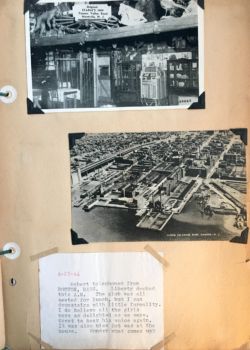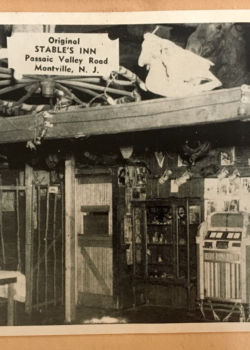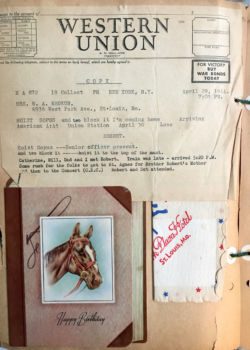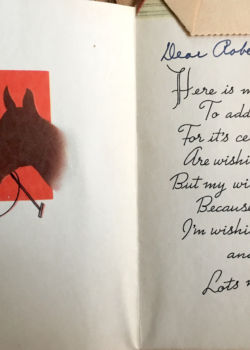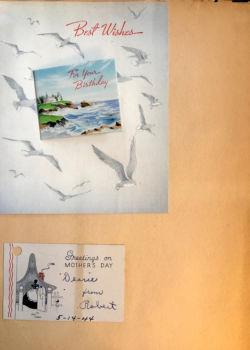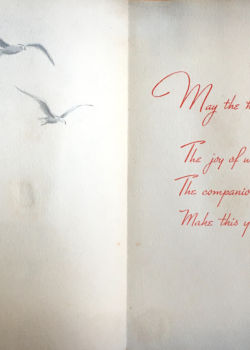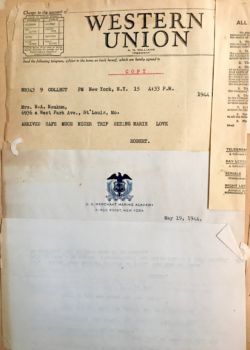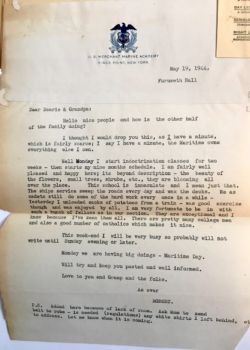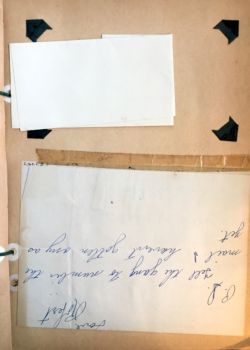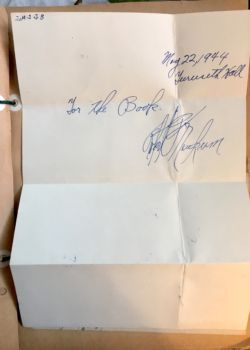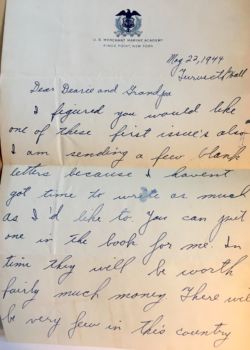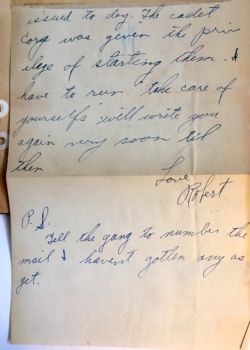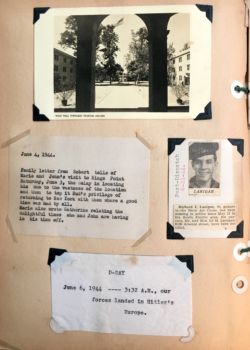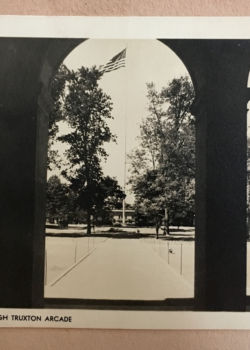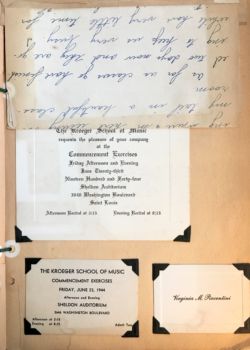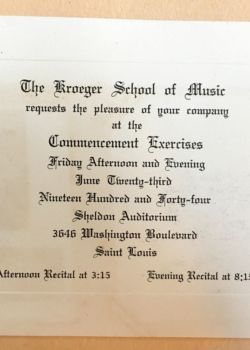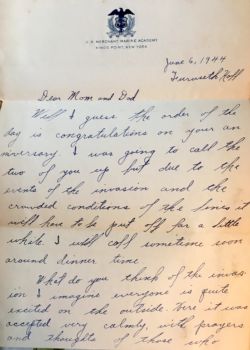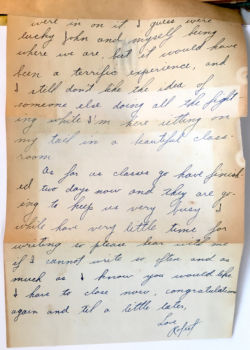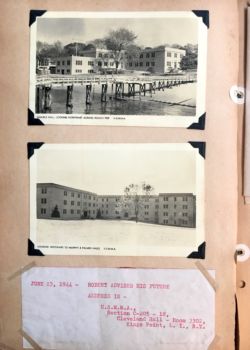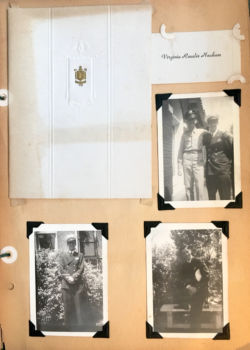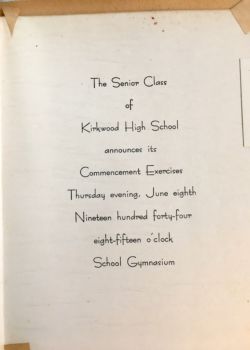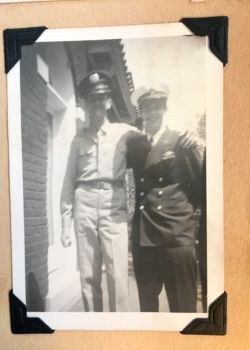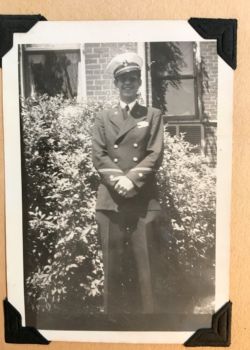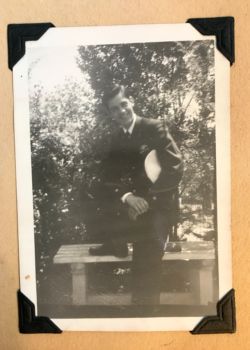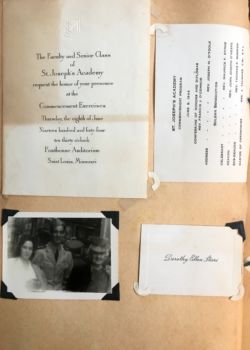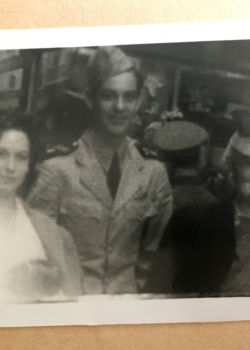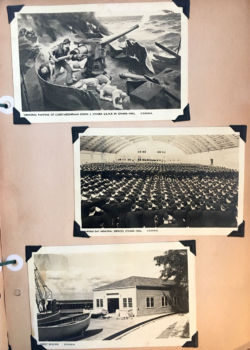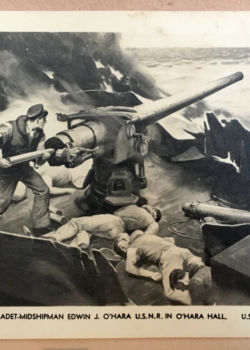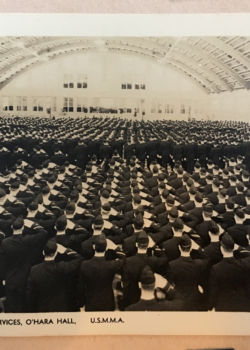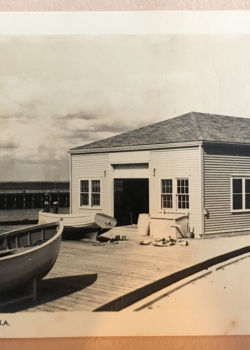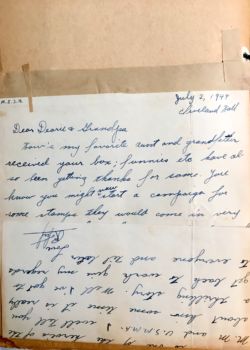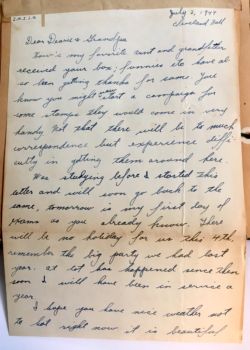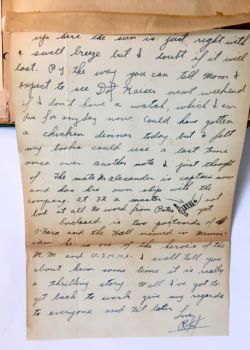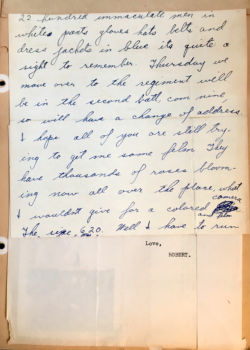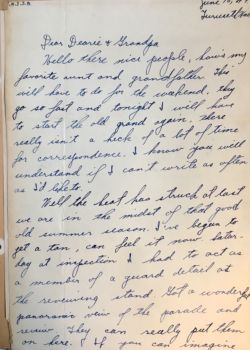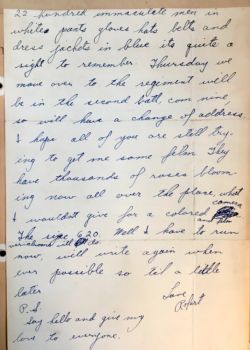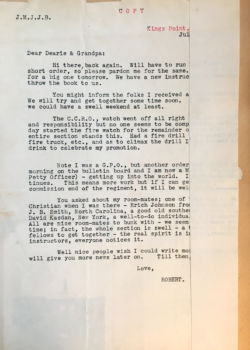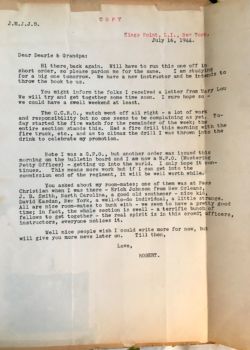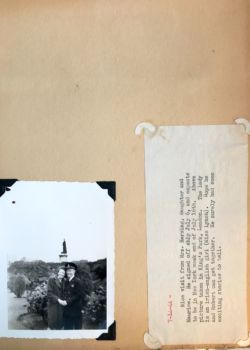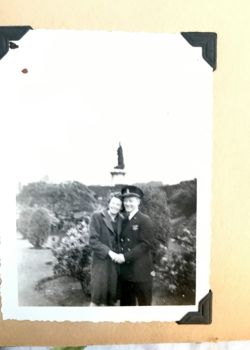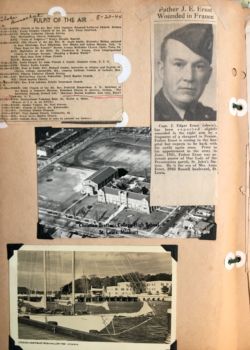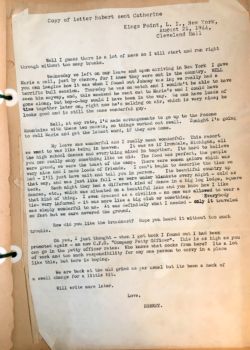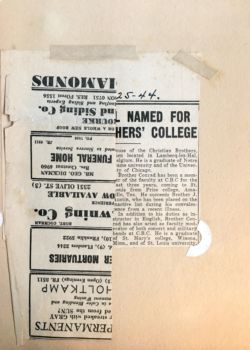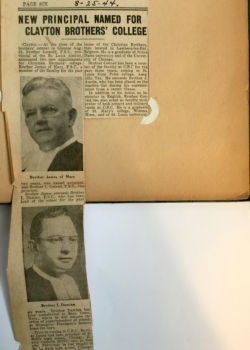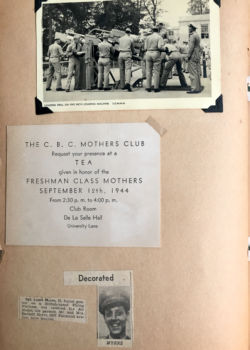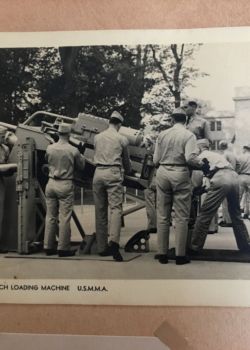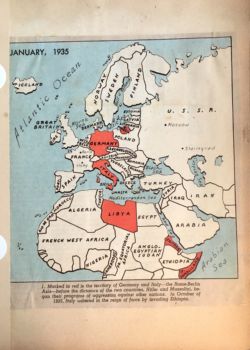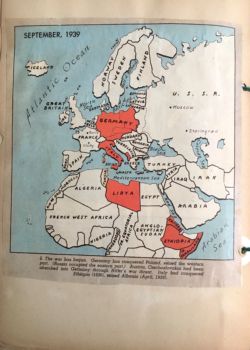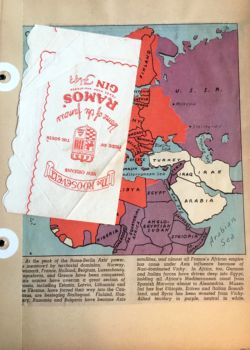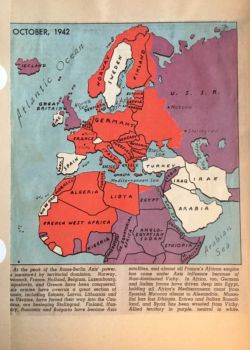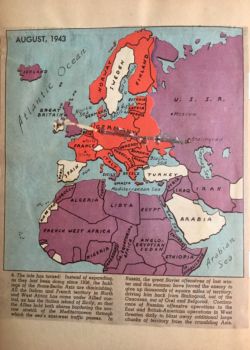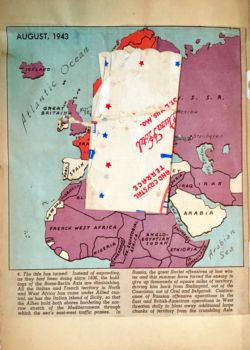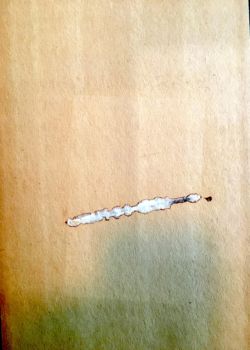Album 1 | Album 2 | Album 3 | Ephemera | Album Home

The story goes that Robert “Bob” Paul Neukum lied about his age and enrolled as a Deck cadet at the Merchant Marine Academy in 1943. His parents were not pleased – his father an accountant and his mother a socialite in St. Louis, Missouri had different plans for him. Nevertheless, he survived the gauntlet of war and graduated from Kings Point after an intense eighteen months of study with his section in January 1945. After the war, he quit the Merchant Marine and pursued a career in singing while raising a family. He passed away within the week of his seventy-fifth birthday.
Bob made several voyages as a cadet and then later as a licensed third mate, going to North Africa, Murmansk, and India. The ships he sailed were the famous Liberty ships – hastily thrown together for the duration with a tendency to crack or worse – breaking in half when they encountered rough seas. During his first Fall after having left high school, he had the dubious honor of being the first of his class to be involved in any combat action when his ship came under air attack while in port in London. On the way to Murmansk, he was aboard one of the ships that comprised of the ill-fated Convoy JW 55B. This convoy of merchant ships lured the German battlecruiser Scharnhorst out of her Norwegian fjord and into the gunsights of the HMS Duke of York. With Bob’s convoy caught in the crossfire, the last of the great battleship duels of the war raged around his ship. Scharnhorst went down with a complement of 1,968 men, including 44 teenage cadets on their first training cruise; only 36 German sailors could be fished from the icy Barents Sea. In another convoy, he watched in terror as seamen aboard other ships were burnt alive in flaming oil slicks or swept off-deck into the angry sea. All the while, Bob worked on his sea project. He whispered not a breath of any of it in his letters back home. Instead, Bob sent snapshots of the boiling sea and programs from concerts.
Bob graduated a scant eight months before V-J Day. He heard the announcement of Japan’s capitulation in a Pensacola hotel. That night, he and his comrades celebrated by throwing any and everything from the hotel’s windows. After the war, he had no desire to continue the life of a seaman. While a cadet-midshipman he starred in a musical at Kings Point under the direction of Roland Fiore (who later left the Academy and conducted the Summer Municipal Opera in Kansas City for many years) – and found his lifelong passion. As a child and young adult Bob had always been quite musical and was always performing; throughout grade and high school he was a member of the band, in glee club high school musicals, and performed in the drum and bugle corps; as a senior in high school, he was conductor of the school’s orchestra. With this background and with Mr. Fiore’s encouragement, he decided to have a go as a singer under the bright lights of Broadway. Bob was anxious to make money in a hurry since he had a girlfriend back in St. Louis he wanted to marry; things did not work out for the two and Bob remained in New York to make a career for himself.
Breaking into show business was tough. Bob had to hustle his first few years on the beach. He often did not know where he was going to sleep the night; he bunked at the Y, crashed on friend’s couch, or even slept on the floor of Roland Fiore’s wife’s parents house in New Jersey. He persevered, and after many dozens of auditions, he finally broke the barrier and began picking up bit parts and chorus work in musicals. He eventually established himself as one of the journeymen or regulars in New York’s music scene doing primarily Broadway chorus work. By this point he lived in the heart of Hell’s Kitchen – New York’s actor’s neighborhood – on 48th Street, and was picking the shows he would perform in.
It was in one of these earlier shows – Along Fifth Avenue – that he met his future wife, Dottie Pyren. She was a singer and dancer, and the daughter of Ukranian immigrants. She was from lower Manhattan where she lived with her parents. Along Fifth Avenue was meant to be a vehicle to get some young unknowns before the public and on the road to stardom; two of its unknowns were Jackie Gleason and Nancy Walker. The show lasted five months, but it was long enough for Bob and Dottie to develop a lasting relationship. Theirs was a four-year courtship and on June 19, 1951 with little notice to everyone – even his parents – they married in a small wedding in a Ukrainian church in the old immigrant neighborhood where Dottie was born and raised. At the time they were wed, Bob was singing in the Broadway production Gentleman Prefer Blondes – where he shared the stage with Carol Channing. When the show went on the road, they offered Dottie a part and off the two went.
After touring wound down, they moved to Leonia, New Jersey. Dottie retired after her first son was born; in all, Dottie and Bob had five children together. To help support his family, Bob continued to sing – mostly in clubs since Broadway was in decline. His last show was Fade Out – Fade In closing in 1965 after 271 performances. Being an ardent Roman Catholic, he branched out into liturgical music performing at weddings, funerals, and high masses – all these being in vogue in New York at the time. He became one of the leading authorities in the New York metropolitan area on Gregorian chant. He continued this along with voice-over work and performed in several quartets singing at the Debutante balls every year. His crowning achievement was singing for the Pope and a couple of presidents.
In later years, Bob was diagnosed with Alzheimer’s and both he and Dottie moved to Arizona. However, before he lost his memory, he finally spoke to his family about the war years. He recounted the traumas of his youth making understandable the refuge he found in singing. After he required more specialized care, Bob went to a nursing home. Four months later he passed away, six days past his seventy-fifth birthday in May 2000. Dottie followed him in 2005.
Bob’s obituary says nothing of his time at Kings Point and nothing about his connection with the U.S. Merchant Marine. His gravestone has the two letters MM representing a span of an unforgettable three years at sea – a flashbulb moment in his life.
